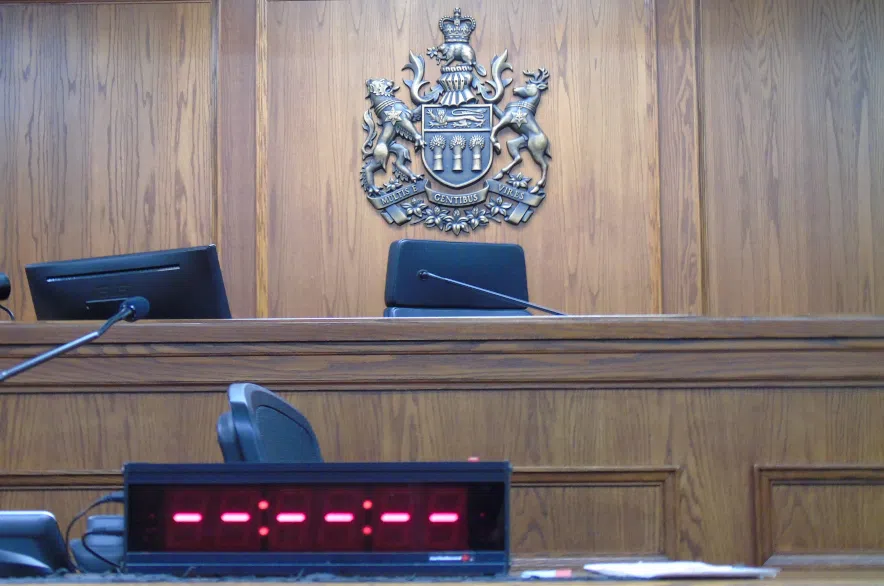The robbery of a taxi in Regina was the last straw for a woman who has now been deemed a long-term offender by the courts.
According to provincial court documents, the robbery happened in June 2022 when Priscilla Wasacase and another woman were picked up by the taxi. Just a short time into the trip, Wasacase took out a knife, held it to the driver’s throat and demanded cash.
Provincial court judge N.P. Evanchuk said the driver calmly pulled the van over and said he wouldn’t give Wasacase any cash because she wasn’t strong enough to rob him. He bent her hand back and took the knife from her.
Court heard that Wasacase did steal a credit/debit machine from the taxi as well as a phone, then ran off. The driver chased after her and kicked her a few times but she got away.
The whole incident was caught on a dashcam video and police arrested Wasacase about a month later. She ended up pleading guilty to robbery.
Defence and Crown lawyers put in a joint submission for a prison sentence of eight years, and both agreed Wasacase met the criteria to be designated a long-term offender.
For someone to receive the long-term offender designation they have to be at substantial risk to re-offend and have a pattern of repetitive behaviour showing a likelihood of hurting others.
Being deemed a long-term offender means the current crime would have a sentence of at least two years and the person would be under supervision for a maximum of 10 years after being released.
READ MORE:
- Woman charged after Cornwall Centre crash appears in Regina court
- Suspect in robbery of taxi driver apprehended by cabbie, bystander
- Machete used in robbery; Regina teen charged
In his decision, the judge went through Wasacase’s history. She’ll be 31 this week, but her criminal record began when she was 12. From the time she was 15, Evanchuk wrote that she had only spent 28 months in total out of some kind of correctional facility.
Her history includes robberies, aggravated assaults, offences with bladed weapons, and a manslaughter conviction as a youth.
However, Evanchuk also took into consideration her childhood.
“It would be a gross understatement to suggest that the offender had a troubled childhood,” he wrote.
Wasacase was the victim of “horrific” physical, sexual and emotional abuse including at the hands of family. Both her parents suffered from substance use disorders and died when Wasacase was in her 20s.
The court decision notes that drug and alcohol use where the main contributors to her offending over the years and that she’s only been able to stay sober while in custody.
An expert in mental health and addictions who testified at the hearing, Dr. Maryana Kravtsenyuk, said Wasacase will need some form of life-long care and that without support she would struggle to abstain from risky behaviours.
Evanchuk came to the conclusion that, without a significant intervention, Wasacase would likely re-offend violently and there would be a requirement for control in the community.
He agreed with the joint submission, sentencing Wasacase to eight years in jail and a 10-year supervision order afterward. He decided it would cause undue hardship, so didn’t impose a victim surcharge.
READ MORE:











